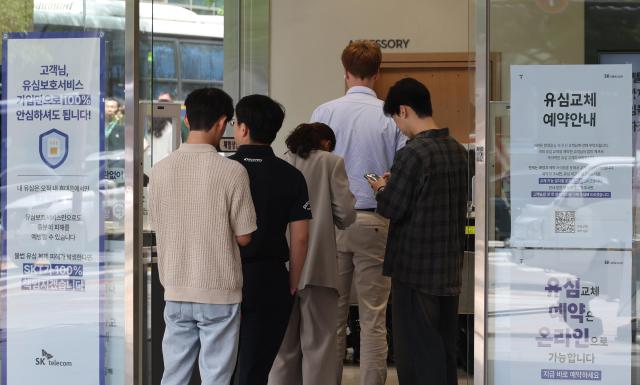
SEOUL, May 26 (AJP) - South Korea’s largest mobile carrier, SK Telecom, has raised device subsidies and sales incentives in an urgent attempt to stem a wave of customer defections triggered by a widespread security breach and logistical failures earlier this month.
The telecom provider reportedly increased its official subsidies for Samsung’s Galaxy S25 smartphones to 680,000 won (about $510) and for Apple’s iPhone 16 Pro and Pro Max models to 650,000 won. With an additional 15 percent in optional support, total discounts rise to 782,000 won and 747,500 won, respectively.
The company also significantly boosted dealer incentives for number portability — sales involving customers switching from rival carriers — raising payouts by more than 300,000 won for premium plans at selected retail outlets.
Industry sources described the move as the first such adjustment since SK Telecom halted new customer sign-ups earlier this month.
The changes follow a steep decline in SK Telecom’s subscriber base, with the company losing nearly 352,000 customers on a net basis over the past month. Typically, net daily customer losses hover around 100, making the recent exodus equivalent to nearly 10 years’ worth of normal churn, by some estimates.
The subscriber losses began after SK Telecom suspended new registrations and number transfers at more than 2,600 T World franchise stores nationwide on May 5, citing a shortage of SIM cards required for onboarding new users.
While device upgrades continued at other retail locations, the company has struggled to maintain standard promotional activities amid the ongoing supply chain issue.
In a statement, a company spokesperson confirmed the changes, describing them as “minimal measures to respond to other mobile carriers’ subsidy increases and sales incentive policies.” The statement referenced competitor KT’s recent move to raise subsidies for the Galaxy S25 to 700,000 won just one day prior to SK Telecom’s decision.
SK Telecom said it has so far completed SIM card replacements for approximately 4.17 million customers, while 4.82 million are still awaiting service — numbers that underscore the scope of the operational crisis.
The rare disruption has put pressure on South Korea’s highly competitive telecommunications industry, where customer loyalty is often driven by aggressive promotional offers and seamless service.
Copyright ⓒ Aju Press All rights reserved.

